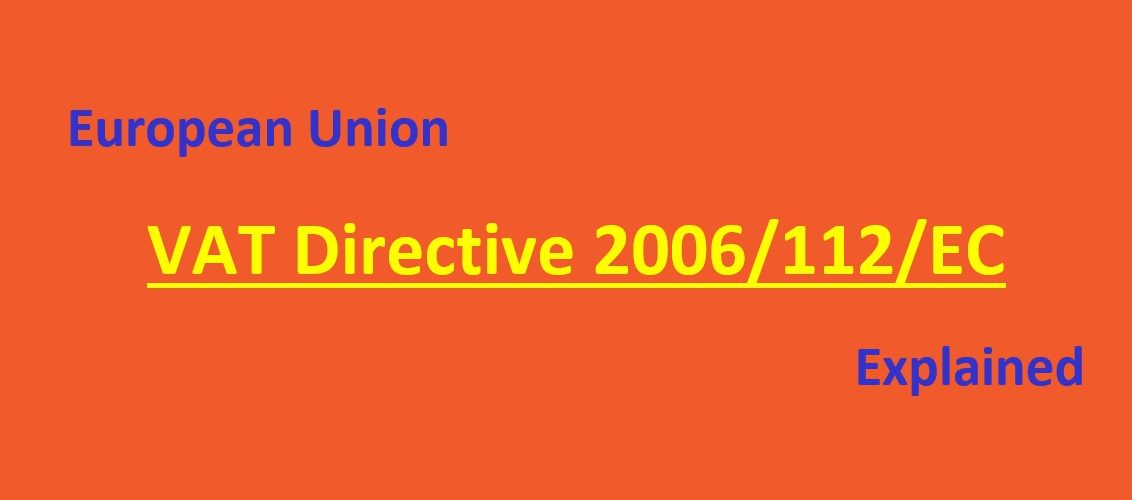Summary
- The ”content” of an invoice is defined in art. 226 of the EU VAT Directive 2006/112/EC.
- 15 data fields are to be mentioned on an invoice to ensure compliance with VAT legislation
- A fully compliant invoice is a forma requirement to ensure the ability to recover VAT
Relevant article in the EU VAT Directive
Article 226 (Content of invoices)
Without prejudice to the particular provisions laid down in this Directive, only the following details are required for VAT purposes on invoices issued pursuant to Articles 220 and 221:
(1) the date of issue;
(2) a sequential number, based on one or more series, which uniquely identifies the invoice;
(3) the VAT identification number referred to in Article 214 under which the taxable person supplied the goods or services;
(4) the customer’s VAT identification number, as referred to in Article 214, under which the customer received a supply of goods or services in respect of which he is liable for payment of VAT, or received a supply of goods as referred to in Article 138;
(5) the full name and address of the taxable person and of the customer;
(6) the quantity and nature of the goods supplied or the extent and nature of the services rendered;
(7) the date on which the supply of goods or services was made or completed or the date on which the payment on account referred to in points (4) and (5) of Article 220 was made, in so far as that date can be determined and differs from the date of issue of the invoice;
(7a) where the VAT becomes chargeable at the time when the payment is received in accordance with Article 66(b) and the right of deduction arises at the time the deductible tax becomes chargeable, the mention ‘Cash accounting’;
(8) the taxable amount per rate or exemption, the unit price exclusive of VAT and any discounts or rebates if they are not included in the unit price;
(9) the VAT rate applied;
(10) the VAT amount payable, except where a special arrangement is applied under which, in accordance with this Directive, such a detail is excluded;
(10a) where the customer receiving a supply issues the invoice instead of the supplier, the mention ‘Self-billing’;
(11) in the case of an exemption, reference to the applicable provision of this Directive, or to the corresponding national provision, or any other reference indicating that the supply of goods or services is exempt;
(11a) where the customer is liable for the payment of the VAT, the mention ‘Reverse charge’;
(12) in the case of the supply of a new means of transport made in accordance with the conditions specified in Article 138(1) and (2)(a), the characteristics as identified in point (b) of Article 2(2);
(13) where the margin scheme for travel agents is applied, the mention ‘Margin scheme — Travel agents’;
(14) where one of the special arrangements applicable to second-hand goods, works of art, collectors’ items and antiques is applied, the mention ‘Margin scheme — Second-hand goods’; ‘Margin scheme — Works of art’ or ‘Margin scheme — Collector’s items and antiques’ respectively;
(15) where the person liable for payment of VAT is a tax representative for the purposes of Article 204, the VAT identification number, referred to in Article 214, of that tax representative, together with his full name and address.
Importance to have a ”compliant” invoice
A valid invoice including all data fields as defined in art. 226 is the formal condition to deduct the VAT following art. 178(a) of the EU VAT Directive 2006/112/EC.
Article 178
In order to exercise the right of deduction, a taxable person must meet the following conditions:
(a) for the purposes of deductions pursuant to Article 168(a), in respect of the supply of goods or services, he must hold an invoice drawn up in accordance with Sections 3 to 6 of Chapter 3 of Title XI;
See also in this serie
- Art. 219a – Invoicing – which country’s rules to follow?
- Art. 220 & 221 – Invoicing – For which transactions should an invoice be issued?
- Art. 220a & 226b- Invoicing – Simplified Invoice
Reference to ECJ Cases
The formal condition to have a fully compliant invoice to enable the right to deduct VAT has been discussed in several ECJ Cases. In a majority of cases, the ECJ has rules that even in case the invoice is fully compliant, a business should have the right to deduct VAT. This is referred as the ”Substance over form” concept. In other words, as long as a transaction has taken place (”substance”), a business should have the right to deduct VAT, even if ”formal” requirements are missing.














